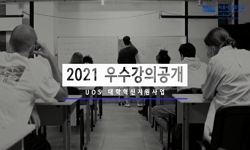근래에 기본소득 제도에 관한 논의가 다양한 방식으로 나타나고 있는데, 특히 전체 국가가 아닌 지역 정부 수준에서 기본소득을 도입하는 시도가 활발하다. 대표적인 사례로, 알래스카와 마...
http://chineseinput.net/에서 pinyin(병음)방식으로 중국어를 변환할 수 있습니다.
변환된 중국어를 복사하여 사용하시면 됩니다.
- 中文 을 입력하시려면 zhongwen을 입력하시고 space를누르시면됩니다.
- 北京 을 입력하시려면 beijing을 입력하시고 space를 누르시면 됩니다.
https://www.riss.kr/link?id=A104892216
- 저자
- 발행기관
- 학술지명
- 권호사항
-
발행연도
2017
-
작성언어
Korean
-
주제어
기본소득 ; 지방자치단체 ; 알래스카 ; 마카오 ; 서울 ; 성남 ; 청년배당 ; 평등원칙 ; 보충성 원칙 ; 자치입법 ; 규정형식 ; 남북 통일 ; basic income ; local government ; municipality ; Alaska ; Macao ; Seoul ; Sungnam ; Youth Dividend ; Equality Principle ; Subsidiary Principle ; municipal legislation ; form of legislation ; unification of Korea
-
KDC
363
-
자료형태
학술저널
-
수록면
243-288(46쪽)
- 제공처
- 소장기관
-
0
상세조회 -
0
다운로드
부가정보
국문 초록 (Abstract)
었다.
한국에서는 서울특별시와 성남시를 중심으로 변형된 형태의 기본소득에 관한 논의가 이루어지고 있다. 서울특별시의 청년수당과 성남시의 청
년배당 제도는 지방자치단체가 자체적으로 제도를 도입하여 실시하려 하였고, 중앙행정기관 내지 상급 지방자치단체가 감독권한을 행사함으로써 그러한 시도를 제지하려 하였다는 공통점이 있다. 다만 구체적인 내용에 있어 기본소득의 개념정의에 부합하는 제도인지 여부, 그 지원의 방법, 현재까지의 사안의 진행경과 등은 서울특별시와 성남시의 사안이 서로 다르다.
한국의 지방자치단체가 기본소득을 도입하려 할 경우 주요한 법적 쟁
점은 다음과 같다. 첫째, 국회가 제정한 형식적 의미의 법률이 필요한 것
인지 아니면 자치입법으로 족한 것인지 규정형식이 문제된다. 둘째, 「사회 보장기본법」 제26조에서 정한 협의‧조정 제도의 법적 의미가 무엇인지, 협의절차 및 그 결과에 법적 구속력이 있는지 여부에 관하여 다툼이 있다. 셋째, 해당 지방자치단체 내의 주민 간에, 혹은 다른 지방자치단체의 주민과 관계에서 평등원칙의 위배가 논의될 수 있다.
지방자치단체의 기본소득 제도를 도입할 것인지 여부 및 그 구체적인 방안은 최종적으로는 각계의 의견을 충분히 수렴하여 입법정책적으로 결
정할 문제라고 보인다. 다만 그 과정에서 논의의 배경과 찬반 양론의 논거를 충분히 숙지할 필요가 있고, 특히 미래의 남북 통일을 염두에 두고 제도를 설계하여야 할 것이다.
근래에 기본소득 제도에 관한 논의가 다양한 방식으로 나타나고 있는데, 특히 전체 국가가 아닌 지역 정부 수준에서 기본소득을 도입하는 시도가 활발하다. 대표적인 사례로, 알래스카와 마카오에서는 국가 단위가 아닌 개별국가 내의 일부 지역을 중심으로 이미 기본소득 제도가 도입되
었다.
한국에서는 서울특별시와 성남시를 중심으로 변형된 형태의 기본소득에 관한 논의가 이루어지고 있다. 서울특별시의 청년수당과 성남시의 청
년배당 제도는 지방자치단체가 자체적으로 제도를 도입하여 실시하려 하였고, 중앙행정기관 내지 상급 지방자치단체가 감독권한을 행사함으로써 그러한 시도를 제지하려 하였다는 공통점이 있다. 다만 구체적인 내용에 있어 기본소득의 개념정의에 부합하는 제도인지 여부, 그 지원의 방법, 현재까지의 사안의 진행경과 등은 서울특별시와 성남시의 사안이 서로 다르다.
한국의 지방자치단체가 기본소득을 도입하려 할 경우 주요한 법적 쟁
점은 다음과 같다. 첫째, 국회가 제정한 형식적 의미의 법률이 필요한 것
인지 아니면 자치입법으로 족한 것인지 규정형식이 문제된다. 둘째, 「사회 보장기본법」 제26조에서 정한 협의‧조정 제도의 법적 의미가 무엇인지, 협의절차 및 그 결과에 법적 구속력이 있는지 여부에 관하여 다툼이 있다. 셋째, 해당 지방자치단체 내의 주민 간에, 혹은 다른 지방자치단체의 주민과 관계에서 평등원칙의 위배가 논의될 수 있다.
지방자치단체의 기본소득 제도를 도입할 것인지 여부 및 그 구체적인 방안은 최종적으로는 각계의 의견을 충분히 수렴하여 입법정책적으로 결
정할 문제라고 보인다. 다만 그 과정에서 논의의 배경과 찬반 양론의 논거를 충분히 숙지할 필요가 있고, 특히 미래의 남북 통일을 염두에 두고 제도를 설계하여야 할 것이다.
다국어 초록 (Multilingual Abstract)
In Korea, modified forms of basic income are being discussed, especially those adopted by Seoul and Sungnam. The ‘Youth Allowance’project adopted by Seoul and the ‘Youth Dividend’ project adopted by Sungnam share a common history of attempts by local governments to implement a modified form of basic income being held back by the national administration and/or the higher municipality. However, they differ in how closely each system fits the definition of basic income, the actual form in which basic income is paid and the aftermath of initial disagreement with national government.
The main legal issues to be examined concerning implementation of basic income by local governments in Korea are as follows. First, there is the question of the form of legislation, i.e. whether it would be necessary for an act to be passed by the National Assembly or would a municipal legislation suffice. Second, there is an ongoing argument on the meaning and legal effect of ‘consultation’ and ‘arbitration’ required by Article 26 of Framework Act on Social Security. Third, whether residents of the municipality in question are treated equally and whether residents of different municipalities are treated equally may be disputed.
Whether basic income on a local level should be implemented and specific plans for implementation are questions that should, in the end, be decided politically after sufficient discussion. Policy makers should be well aware of the reasons provided by both sides of the argument and the context surrounding it to make a well-informed decision, and give thought to its implications for the future unification of Korea.
Recently, the discussion on basic income has given birth to various results, and there are many attempts to adopt a basic income system on a local, not national, government level. Notable examples are Alaska and Macao, where basic income has been alre...
Recently, the discussion on basic income has given birth to various results, and there are many attempts to adopt a basic income system on a local, not national, government level. Notable examples are Alaska and Macao, where basic income has been already implemented on the level of local regions within the respective nation-states.
In Korea, modified forms of basic income are being discussed, especially those adopted by Seoul and Sungnam. The ‘Youth Allowance’project adopted by Seoul and the ‘Youth Dividend’ project adopted by Sungnam share a common history of attempts by local governments to implement a modified form of basic income being held back by the national administration and/or the higher municipality. However, they differ in how closely each system fits the definition of basic income, the actual form in which basic income is paid and the aftermath of initial disagreement with national government.
The main legal issues to be examined concerning implementation of basic income by local governments in Korea are as follows. First, there is the question of the form of legislation, i.e. whether it would be necessary for an act to be passed by the National Assembly or would a municipal legislation suffice. Second, there is an ongoing argument on the meaning and legal effect of ‘consultation’ and ‘arbitration’ required by Article 26 of Framework Act on Social Security. Third, whether residents of the municipality in question are treated equally and whether residents of different municipalities are treated equally may be disputed.
Whether basic income on a local level should be implemented and specific plans for implementation are questions that should, in the end, be decided politically after sufficient discussion. Policy makers should be well aware of the reasons provided by both sides of the argument and the context surrounding it to make a well-informed decision, and give thought to its implications for the future unification of Korea.
목차 (Table of Contents)
- 국문초록
- Ⅰ. 서설
- Ⅱ. 기본소득 개념의 영역적 요건
- Ⅲ. 지방자치단체 차원의 기본소득에 관한 국내의 사례
- Ⅳ. 지방자치단체 차원에서 기본소득을 도입할 경우의 법적 쟁점
- 국문초록
- Ⅰ. 서설
- Ⅱ. 기본소득 개념의 영역적 요건
- Ⅲ. 지방자치단체 차원의 기본소득에 관한 국내의 사례
- Ⅳ. 지방자치단체 차원에서 기본소득을 도입할 경우의 법적 쟁점
- Ⅴ. 평가 및 시사점
- 참고문헌
- Abstract
동일학술지(권/호) 다른 논문
-
- 서울대 사회보장법연구회
- 이율경(李律庚)
- 2017
-
[토론문 2] ‘일본의 고령기 소득보장제도’에 대한 토론문
- 서울대 사회보장법연구회
- 송영신(宋永信)
- 2017
-
- 서울대 사회보장법연구회
- 신권철(申權澈)
- 2017
-
대만의 중고령자 및 고령자의 취업촉진정책과 노년경제안전제도
- 서울대 사회보장법연구회
- 쉬 완닝(徐婉寧)
- 2017




 DBpia
DBpia







